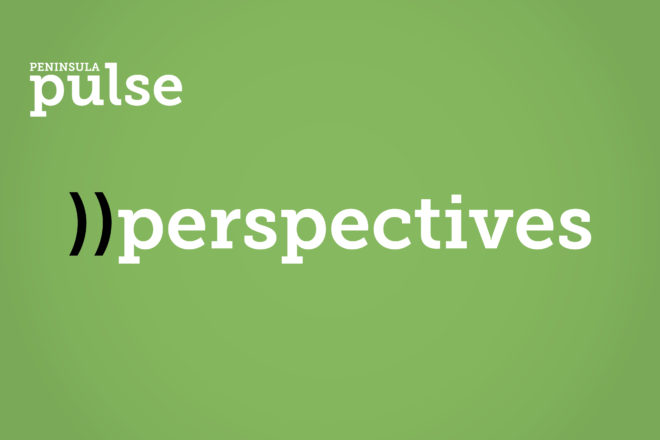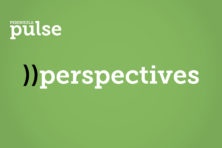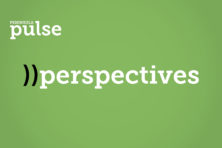Pulse of Philanthropy: The Enormous Power of Weak Bonds
- Share
- Tweet
- Pin
- Share

by BRET BICOY, President and CEO, Door County Community Foundation
Last summer, I finally broke down and bought a pair of noise-canceling earbuds. My father had hearing problems late in life, so as I’ve grown older, I thought the active noise cancellation could help to protect my hearing a bit while I’m mowing the lawn or blowing snow. When you put them in your ears and turn them on, it’s as if the entire outside world has gone silent. Even standing next to a noisy lawn mower, you hear only a muffled rumble.
My wife accuses me of being a techno-junkie because I love new technology gadgets, most of which eventually turn out to be junk that sits on the shelf. Yet despite the fact that noise-canceling earbuds really do live up to the hype, for years I had deliberately resisted purchasing them out of a fear of how they might diminish my life. Indeed, now that I own a pair, that fear has been proven true.
I stayed in downtown Chicago for a few days last month. I was there on Door County Community Foundation business, so I was traveling alone. After a day filled with meetings, I thought I would sit in a coffee shop for a bit, wander along Michigan Avenue, then grab a bite for dinner. Now that I have these fancy new earbuds, I decided to use them to keep me company.
The noise-canceling earbuds did their job exactly as promised. Even though I was surrounded by people everywhere I went along Chicago’s crowded Magnificent Mile, I sat in absolute silence at the coffee shop listening to a podcast, quietly meandered in and out of stores listening to music, and ate dinner alone in perfect isolation as I streamed the latest news. Everywhere I went, I was surrounded by people, yet I managed to spend that entire evening avoiding any semblance of a human connection.
Without these earbuds, I’ve had people at coffee shops offer a casual word to me about a book I was holding, comment on how pretty the leaves were outside or inquire about a good place to have dinner. When I’ve meandered through stores in the past, I’ve had people approach me to say that I’d look good in an outfit I had just pulled off the rack. Once a friendly person wisely suggested that I should put a particular shirt back on the rack as quickly as possible. When alone at dinner, I’ve had a kind server engage in longer conversations with me. On occasion, I’ve even had nice chats with other diners who were also sitting alone at neighboring tables. Wearing the noise-canceling earbuds that evening in Chicago stole all these opportunities from me.
When we have positive interactions with strangers or people we barely know, we are reaffirming for ourselves and each other that most folks are decent, love their families and are trying to do what’s right. In other words, most folks are a lot like us.
I worry that we’re losing these opportunities to build bonds when we forgo chances to connect with strangers. It’s easy to trust people whom we know or who are similar to us, yet our entire society depends upon the social contract that exists between people who are strangers and often have little in common. Traffic flows, for example, only if I trust that the person who is driving on the other side of the road is going to obey the same traffic laws that I do. Restaurants work only if I’m confident that the chef will take sufficient care to prepare my food safely. Our entire economy is based on the belief that the banker will account for my deposits honestly.
Someone who’s smarter than I am once referred to this as the “enormous power of weak bonds.” These positive, everyday interactions that we have with strangers individually don’t do much for society, but taken together, they form the enormously powerful foundation of trust upon which we have built our nation.
If trust is lost – if the social contract we have with each other is broken – then our society will ultimately fail. Goodness knows I’m not suggesting that there will be an inevitable collapse of American society because of noise-canceling earbuds, but the continued success of our country rests upon our willingness to interact and engage with those who are different from us.
I remain absolutely confident that we still have far more in common as a people than our politics would have us believe – yet it’s easy to forget that if we don’t engage with strangers.
Contact Bret Bicoy at [email protected].


